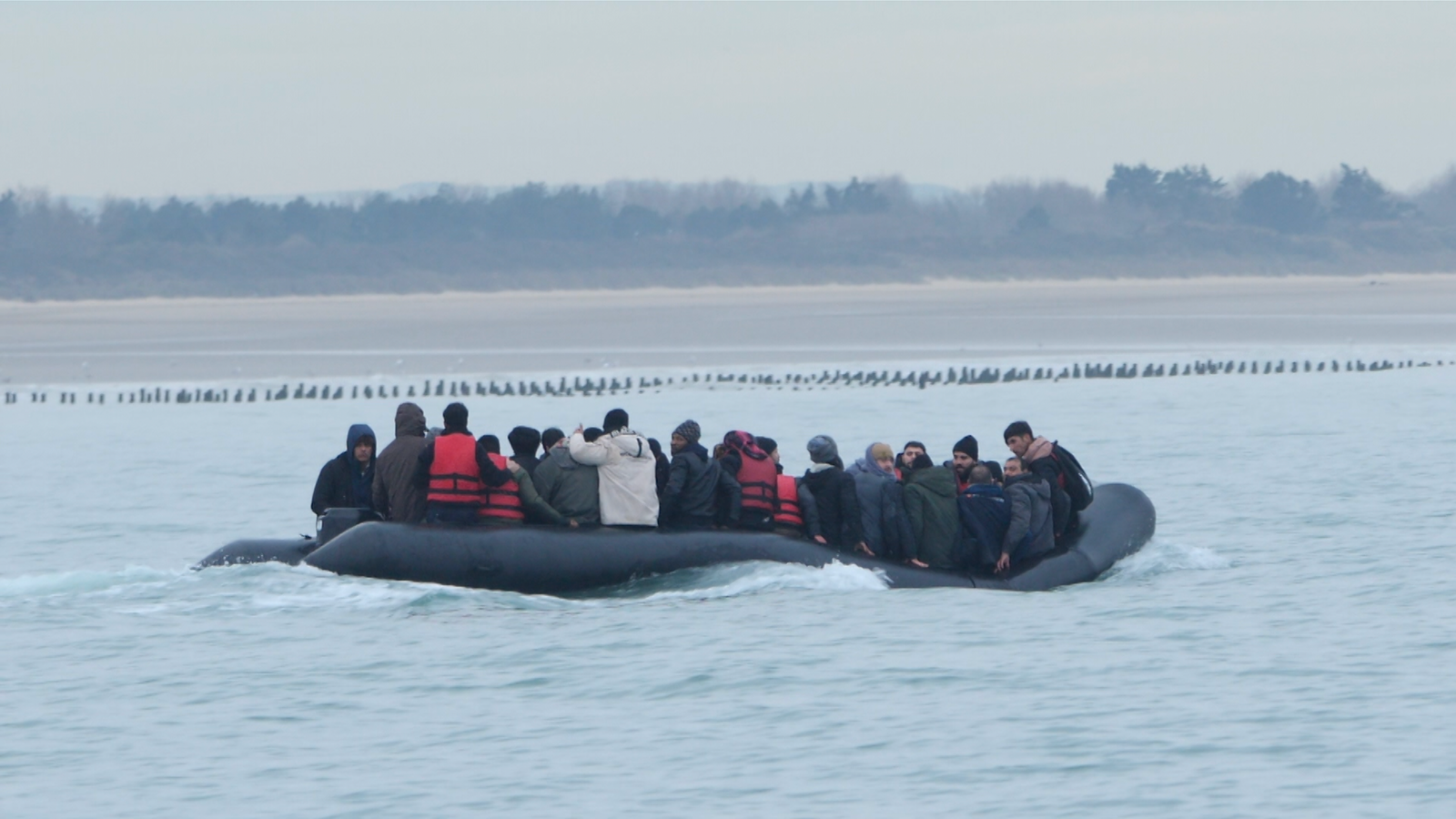It was in December 2018 after a “major incident” off the Kent coast, the then home secretary Sajid Javid cut his family holiday short, headed to Dover and pledged to make Channel crossings “unviable”.
Since then tough rhetoric, “joint action plans” with France and new legislation have done little to stop the crossings.
In 2018, fewer than 300 people crossed the Channel. Last year the number was more than 45,000. Will Rishi Sunak succeed on small boats where his predecessors failed?
Minister defends Sunak’s ‘robust’ asylum plans – live politics updates
The long-awaited Illegal Immigration Bill, being unveiled tomorrow, sends a clear message: the legislation will stop people who crossed the Channel in small boats from claiming asylum and ban them for life from returning to the UK.
A government source said the focus is to “remove people quickly” and the bill will “address human rights challenges”.
Current Home Secretary Suella Braverman’s team believe that, unlike her predecessor’s Nationality and Borders Bill, the legislation will reduce the number of crossings.
Plans to clamp down on Channel migrant crossings ‘unworkable’ – Rishi Sunak warned
Sophy Ridge on Sunday podcast: The small boats plan and the Northern Ireland deal | Chris Heaton-Harris and Lord Dannatt
Rishi Sunak vows to stop small boat crossings: ‘If you come here illegally, you will not be able to stay’
The source said: “This time, the government is much more aware of the political necessity and have pushed everything on in terms of the legal boundaries.”
Enormous practical hurdles though will need to be overcome first.
Read more: PM and home sec vow to stop small boat crossings
Please use Chrome browser for a more accessible video player
There are plans to scale up capacity in Rwanda (currently only a few hundred) and we understand the Home Office is in discussions with other third countries about offshore processing, but deporting thousands of people will be fraught with logistical and legal problems.
Human rights lawyers are already calling the plans “unworkable” and “unethical”.
The Home Office is expecting legal challenges but a government source said: “There are a number of moving parts and we’ve got to get this through parliament.”
Even if legislation does have an impact it will take time to get through parliament, and the government may well face a battle in the House of Lords and with the left of the party to stop the bill from being watered down.
Read more:
Exclusive – Channel people smugglers settling in UK
‘Just another job’ – Sky’s full Q&A with smuggler
Please use Chrome browser for a more accessible video player
While bespoke resettlement schemes exist for countries like Ukraine, Afghanistan and Hong Kong, campaigners say there are few safe routes for people fleeing persecution from other countries.
It is estimated nine people from Iran were resettled via a safe route from January to September last year, 3,500 came on small boats.
I understand the home secretary will also make clear tomorrow her intention to open up safe routes in time.
The Illegal Immigration Bill is unlikely to be the magic bullet that stops small boats immediately, but it is part of a broader plan, key to which will be co-operation with France.
Please use Chrome browser for a more accessible video player
The prime minister hopes a deal on Northern Ireland will reset relations with Europe and it is no coincidence the bill comes days before Mr Sunak and Ms Braverman are due to travel to Paris to meet President Macron.
Relations abroad will help one of the PM’s biggest challenges at home, with polling suggesting small boat crossings remains among the electorate’s top concerns.
A recent YouGov poll found two-thirds (68%) of Britons think that the UK should refuse to accept asylum applications from people who have entered the UK illegally and could reasonably have claimed asylum in another safe country.
The government hopes the issue of small boats will become a dividing line with Labour ahead of a general election. Where Mr Sunak included reducing Channel crossings in his top five priorities, Sir Keir Starmer did not.
Stopping the boats entirely may be unlikely, but images of deportation flights packed full of people in the build-up to an election would send a message, and may be enough to convince the public the Conservatives are the party that is tough on immigration.








